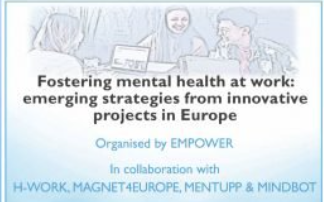News
10th Healthy Workplace awards applications
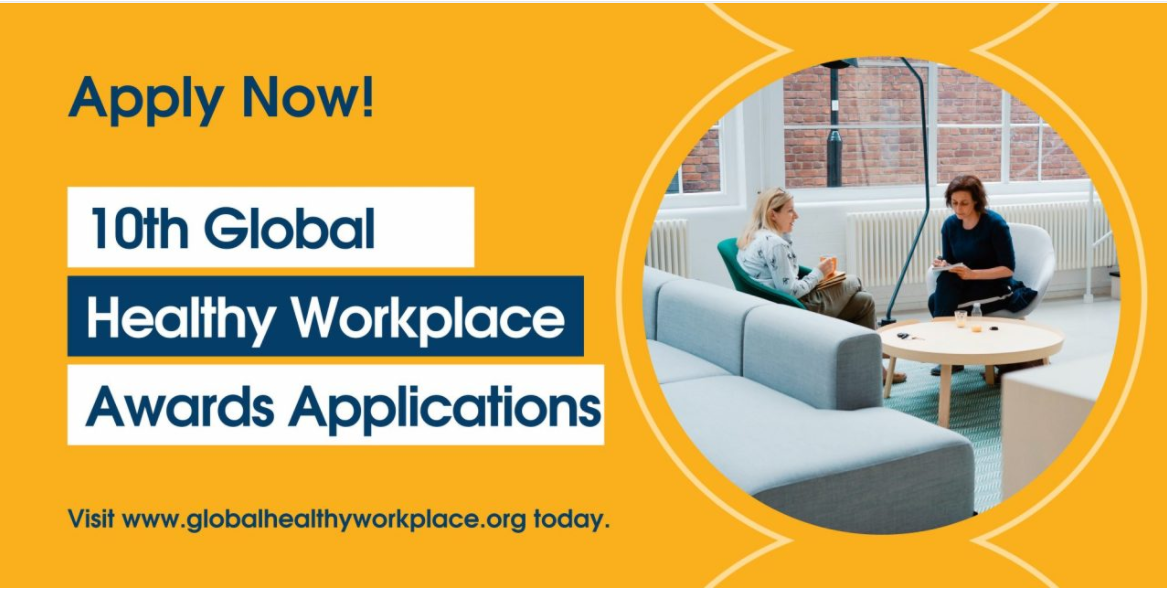
The Global Centre for Healthy Workplaces opens the 10th healthy workplace awards applications.
Applications are open to ALL employer organisations (for profit and not-for-profit, local and international) in one of three categories:
+ Small and Medium-sized Enterprises (SMEs): with less than 500 employees who run exemplary programs.
+ Large Enterprises: with more than 500 employees who run exemplary programs at one local worksite.
+ Multi-national Enterprises: employers with employees in different countries who run exemplary programs across multiple worksite locations and countries.
WHO new FACTSHEET - The vicious cycle of tobacco use and mental illness – a double burden on health

A new factsheet launched by WHO examines the intricate connections between tobacco use and mental illness. The factsheet stresses the urgent need to address these connections: 2 in 3 people with severe mental health conditions are current smokers, which has an enormous impact on health. Reducing smoking among people with mental illness is identified as the single most effective action for reducing the gap in life expectancy.
A double burden on health
The factsheet identifies a feedback loop between mental ill health and tobacco use. Mental illness makes people twice as likely to use tobacco and, at the same time, tobacco makes people more vulnerable to mental health concerns.
The relationship between tobacco usage and mental health is complex and eye-opening. Some figures released in the factsheet are shocking – people with severe mental health conditions die on average 15–20 years prematurely, with tobacco cited as one of the main causes of death.
The impact of tobacco use is not limited to mortality rates, but also affects quality of life and attempts to cope with poor mental health. For example, tobacco reduces the effectiveness of certain medications for mental health. Conversely, quitting tobacco can allow people on certain antipsychotic medications to reduce the dosage by up to 25%.
Taking a myth-busting approach, the factsheet is packed with striking statistics drawn from up-to-date research. It foregrounds how essential it is for public health systems to support people with mental illness to quit tobacco. In addition to benefitting physical health, cessation can lead to numerous improvements in mental health, such as reduced levels of depression, anxiety and stress; enhanced mood; and even improved symptoms of attention deficit hyperactivity disorder (ADHD).
EU Parliament tender procedure

The European Parliament (EP) seeks currently to contract consulting services in order to support the European Parliament's Prevention and Well-Being at Work Unit in managing the occupational risks faced by staff of the EP (TED ref.: 2022/S 015-031143).
For detailed information, please follow the link towards the tender documents. Questions will be dealt with through the same e-tendering platform.
PerOSH Wellbeing at work Conference 2022: wellbeing in hectic times

The dead line for call for abstracts for the wellbeing at work conference has been extended to the 15th February. Don't miss the opportunity of sharing your experience and project results to an researchers and practitioners audience.
Access to the materials of the webinar Fostering mental health at work: emerging strategies from innovative projects in Europe
You can now access the recording and the presentation slides online of the webinar “Fostering mental health at work” that took place on November 10 organized by EMPOWER with the collaboration of HWORK, MAGNET4EUROPE, MENTUPP AND MINDBOT.
ENWHP Job offer: Network officer
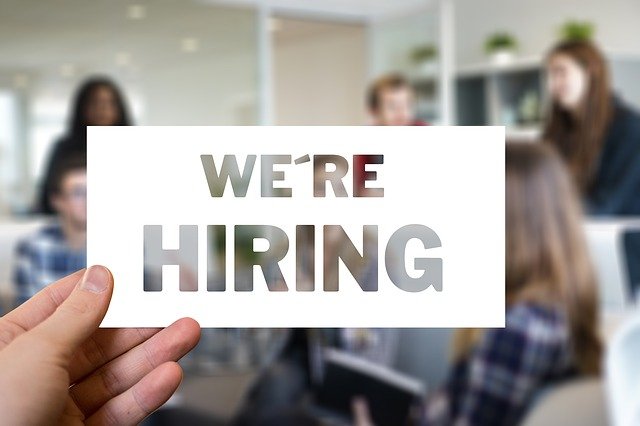
The ENWHP is looking for a multitasking collaborator for its secretariat. Here are some of the characteristics we are looking for:
Project delivery support: Knowledge of EU funding schemes.
Engagement: Experience and knowledge of delivering effective member/customer orientated service AND Experience of collaborative working internationally and with EU institutions.
Business management: Experience of diary co-ordination and arranging meetings together with all related duties; Minute taking skills; Experience of Zoom, MS Teams or other virtual meeting platforms.
Mental Agility: The ability to find ways of solving or pre-empting problems.
Communication: Evidence of written and oral communication in other EU languages.
It is open to all EU citizens. We thank the University of Perugia (one of our members) for the collaboration for the selection of the candidate. The selection will be done on line with teams. Please follows the instructions at this following link: https://www.unipg.it/ricerca/assegni-di-ricerca/bandi-e-procedure?layout=concorso&idConcorso=29668
The deadline for sending your CV and documentation is the 22/July/2021
Free for read ISO 45003:2021(en) Guidelines for managing psychosocial risks
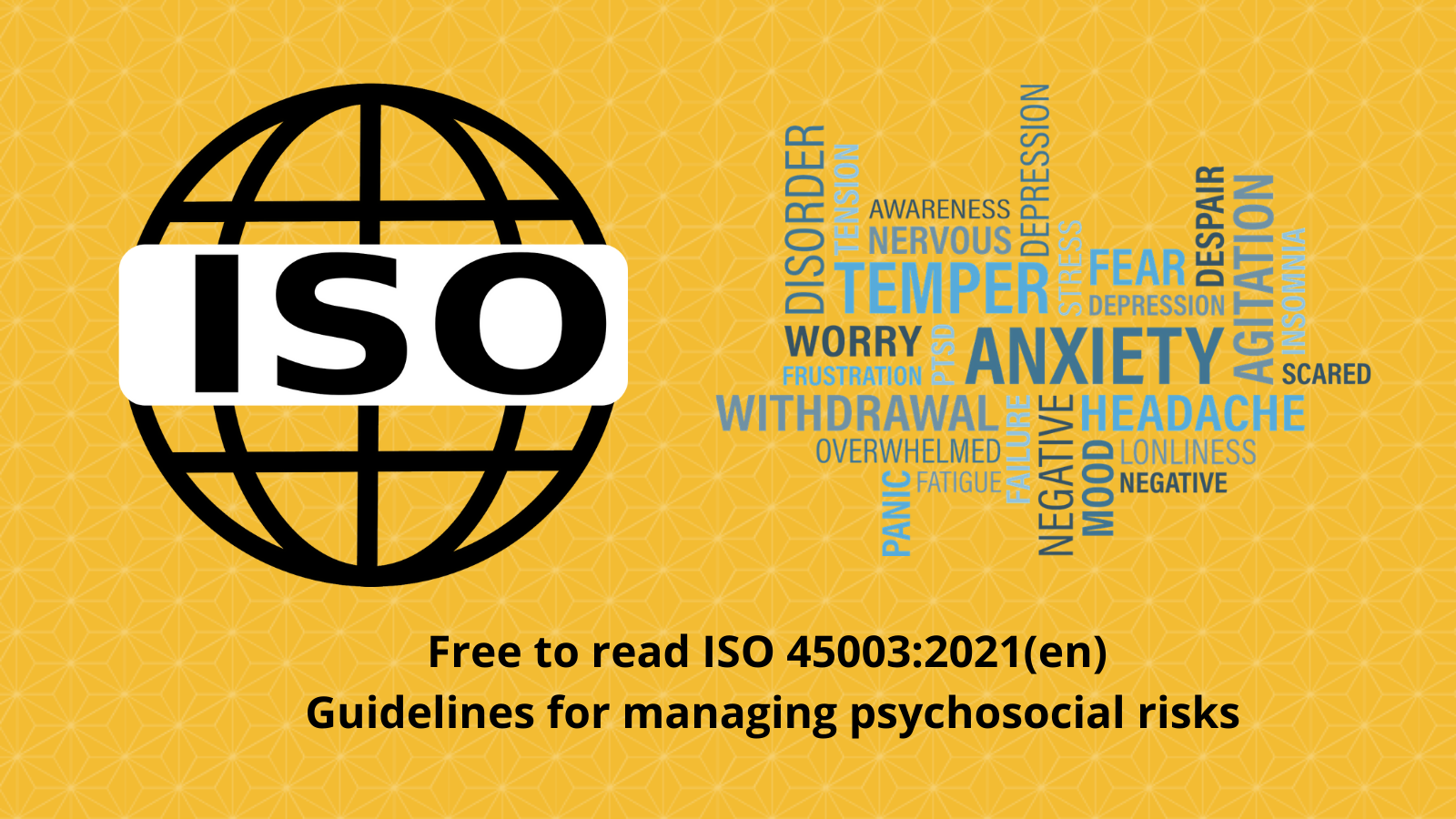
Good news. ISO - International Organization for Standardization has made the decision to make #ISO45003 #Guidelines for managing #psychosocial risks at work free to read as part of its #covid19response. You can read the guidance standard at lnkd.in/e4-KjBX
World's first standard for psychological health and safety at the workplace
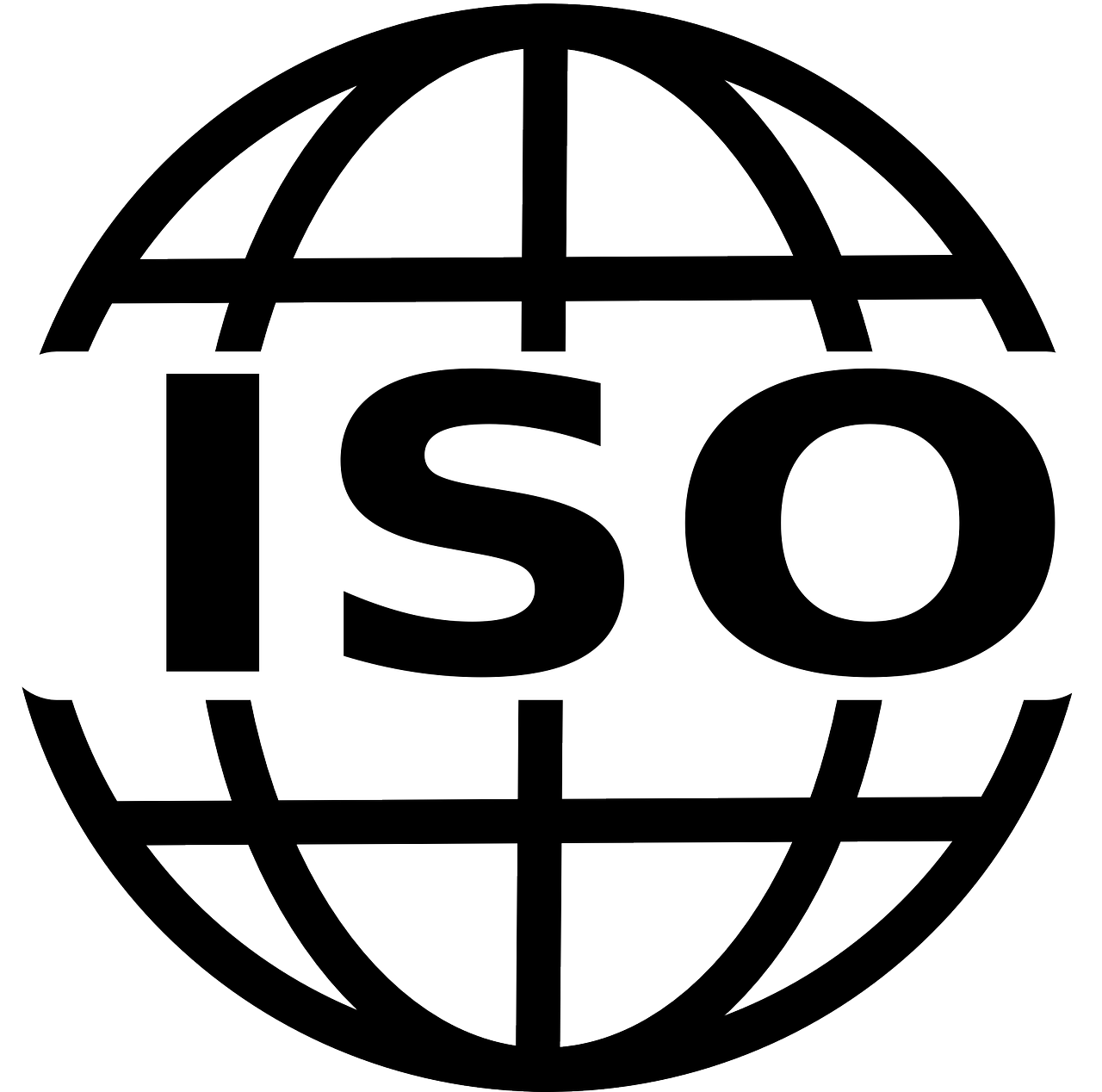
ISO-45003 Occupational health and safety management – Psychological health and safety at work – Guidelines for managing psychosocial risks has been officially published. This voluntary standard gives guidance on managing psychological health and safety risks within an occupational health and safety management system. Perhaps, worth to be read to see if it can help to face the mental health wave resulting from COVID-19.
Two great resources for COVID-19 management
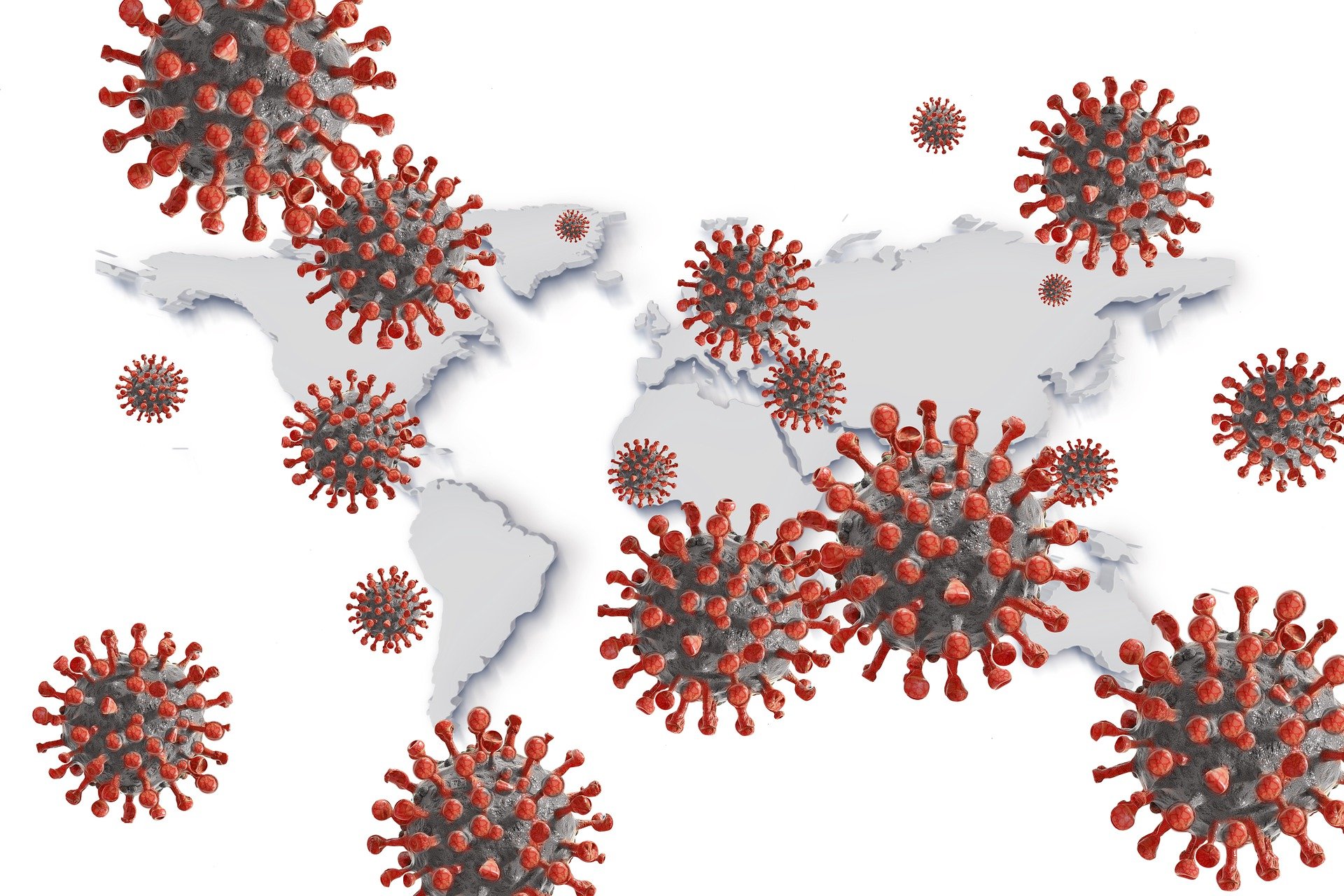
The COVINFORM project: 1) assess COVID-19 responses and impacts in a multilevel governance framework, focusing on government, public health, and citizen responses and the role of information and communication at all stages of the pandemic.; and 2) develop an online portal and toolkit for stakeholders in the governmental, public health, and civil society/community domains and guidance and recommendations for designing effective communication and combating misinformation.
The ISO/PAS 45005:2020 Occupational health and safety management — General guidelines for safe working during the COVID-19 pandemic (read-only availbale) which includes practical recommendations to organizations and workers on how to manage COVID-19 related risks and is suitable for organizations resuming operations, those that have been operational throughout the pandemic, and those that are starting operations.
ILO launch the World Day for Safety and Health at Work 2021 campaign
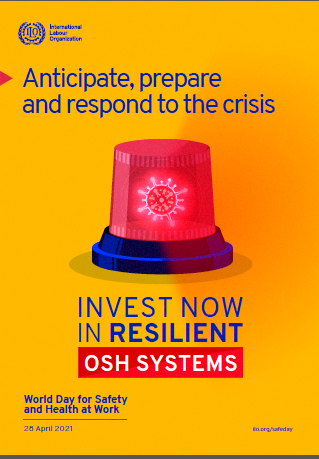
The World Day for Safety and Health at Work 2021 focuses on leveraging the elements of an OSH system as set out in the Promotional Framework for Occupational Safety and Health Convention, 2006 (No.187). The world day report examines how the current crisis demonstrates the importance of strengthening these OSH systems, including occupational health services, at both the national and undertaking level.
